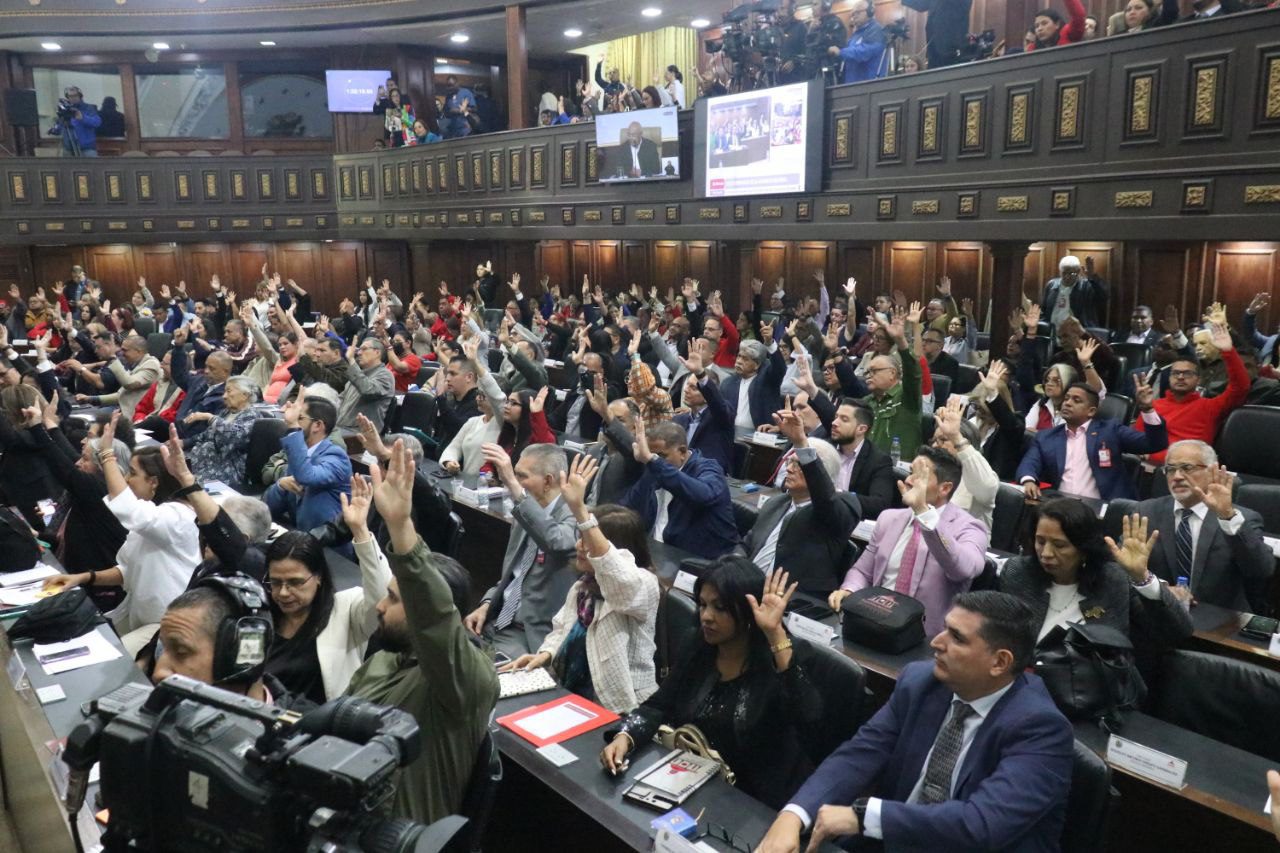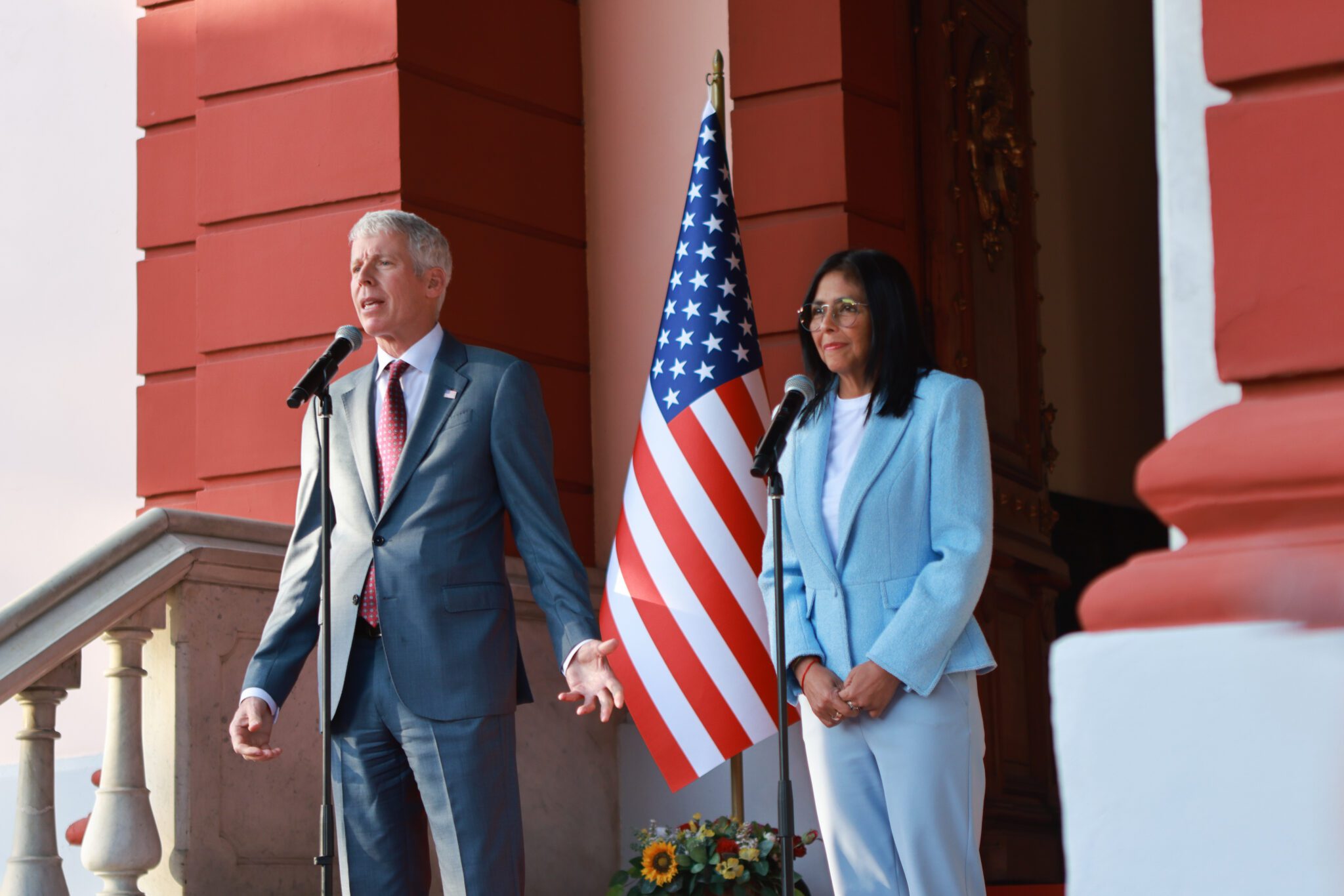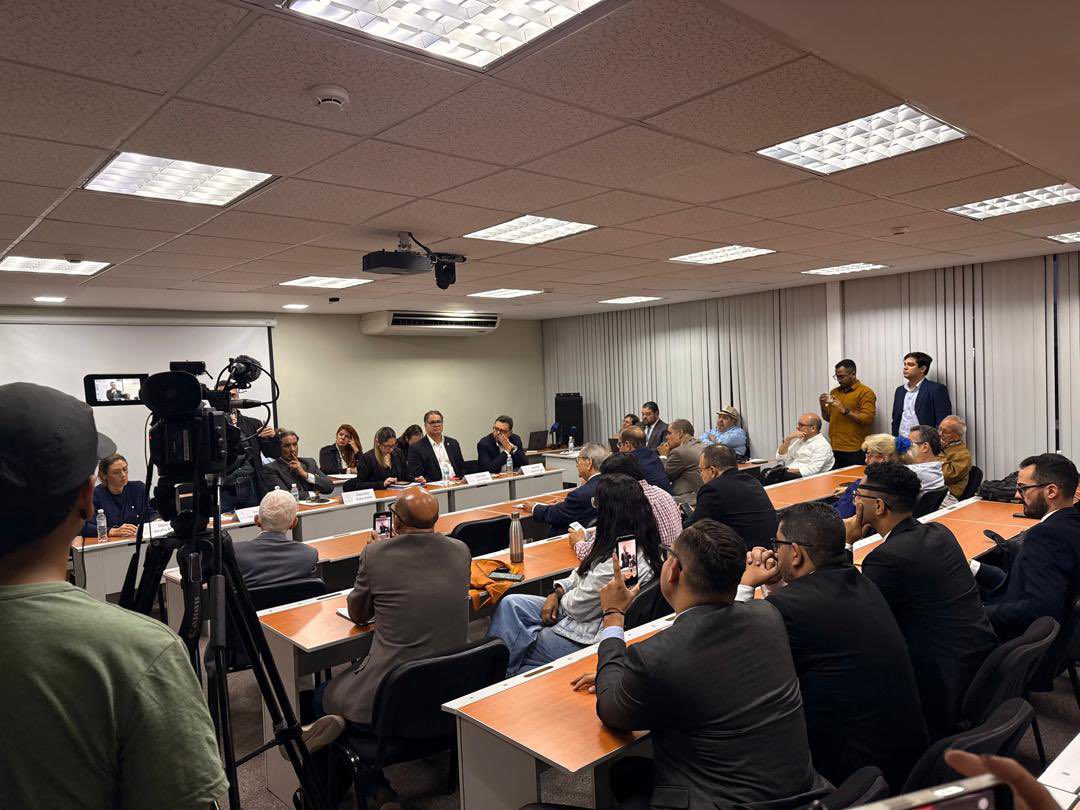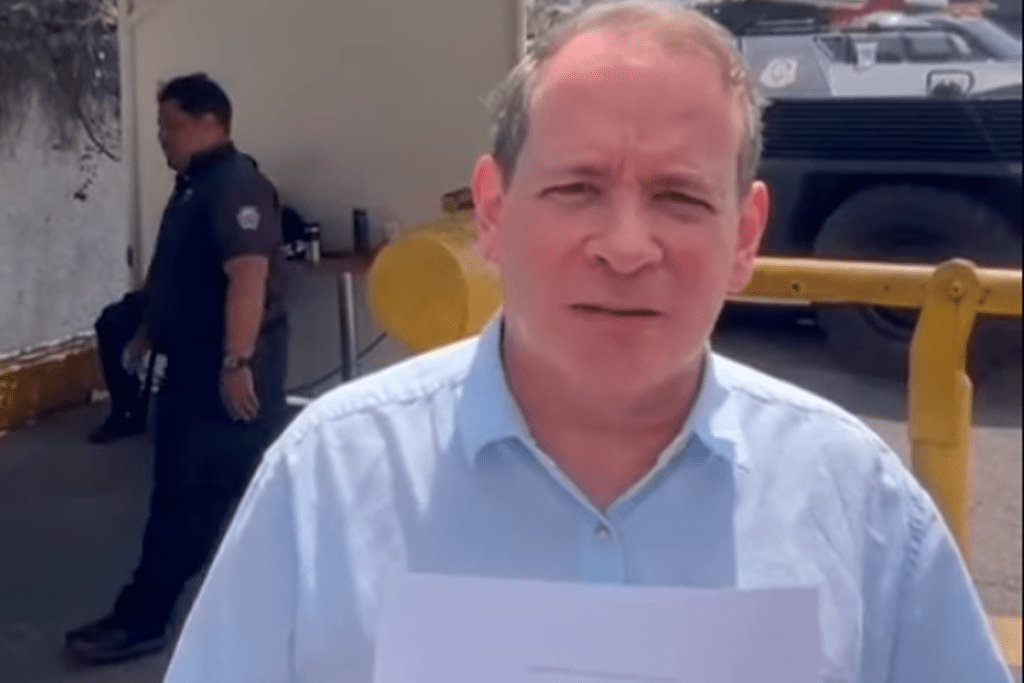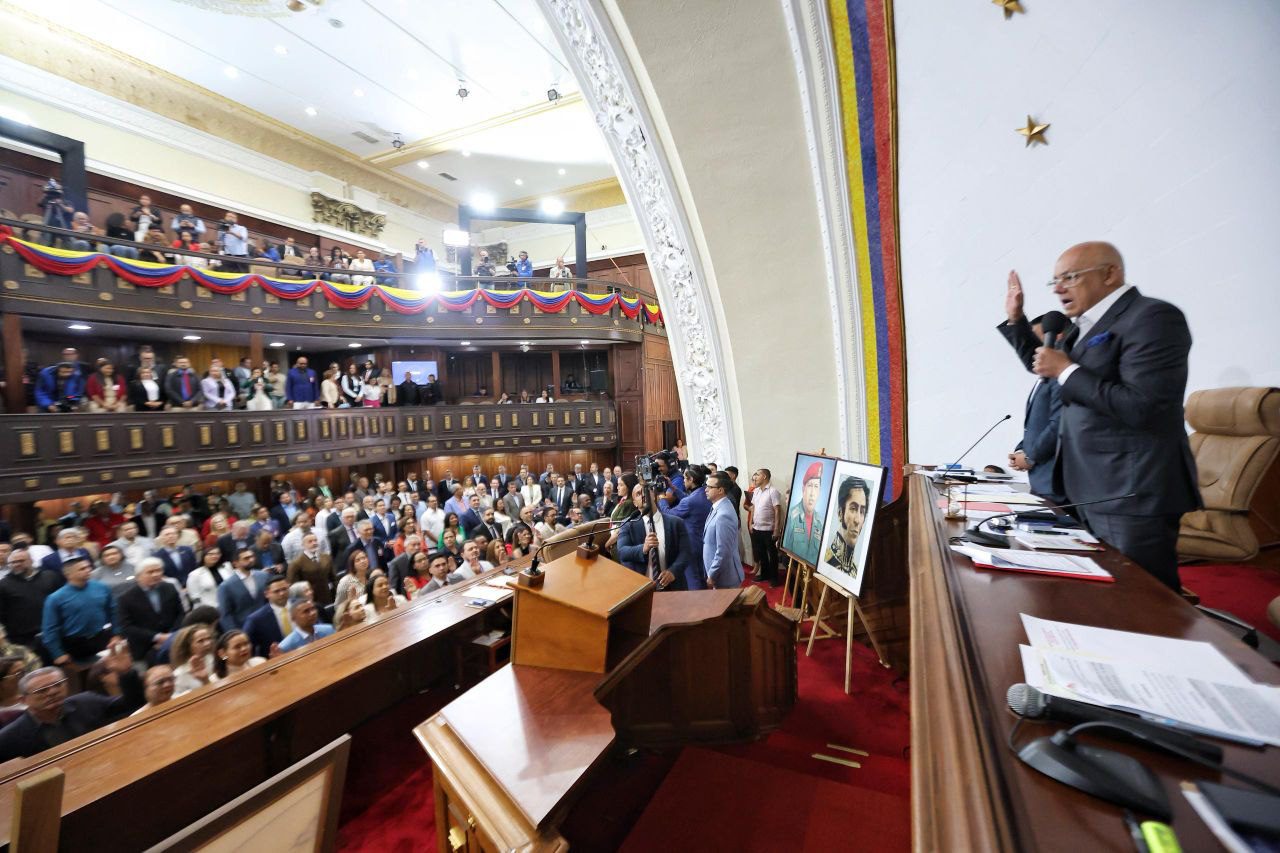The Trump administration is reportedly sending the largest aircraft in the world to the Caribbean to join operations against drug smuggling and “narco-terrorism.” In the image: the USS Gerald R. Ford and the USS Harry S. Truman in 2020. Photo: Defense Visual Information Distribution Service.
Guacamaya, November 1, 2025. The U.S. public is not backing the military campaigns in the Caribbean, either to strike boats at sea or to produce regime change in Venezuela, according to a recent YouGov poll.
Remarkably, the findings included a 10 percentage point drop among Republicans who support the Navy’s presence around Venezuela over the last month, down to 58%. Considering all U.S. adult citizens, 37% disapprove of the deployment and 30% approve—the latter is down from 36% in September.
This Navy deployment has already bombed over a dozen boats accused of carrying drugs into the United States across the Caribbean and the Eastern Pacific, leading to the deaths of around 60 people, according to the Trump administration’s own communications.
The U.S. public is most favourable to the Pentagon’s actions on the strikes alone, where 42% approve of them and 43% disapprove, although with a clear divide between Republicans (76% approve) and Democrats (70% disapprove). This only applied when respondents were told about the U.S. government’s claims that the boats were smuggling drugs. Otherwise, only 27% of respondents support them.
Meanwhile, more Americans oppose than support military action by the U.S. in Venezuela, in each of the different options, even if it were to depose Nicolás Maduro.
Striking land targets, which have been considered in a recent Wall Street Journal article, seem unpopular. 47% of respondents said they would oppose them, and only 19% said they would back such action. In this case, 38% of Republicans would get behind inland air strikes, while 27% would reject them.
In almost all the questions, the level of respondents that is not sure is striking, at about a third in most instances. This reflects the fact that Venezuela is only a pressing issue for some communities inside the United States, while many others do not have a solid opinion on the matter. A case in point, 58% of respondents did not know if they had a favourable or an unfavourable opinion of Maduro.
Context: The U.S. military readies for war in the Caribbean
In recent weeks, the Pentagon has sent assets worryingly close to Venezuelan territory, including three flights of bomber aircraft into the Maiquetia Flight Information Region, and sailed warships such as the USS Iwo Jima and USS Gravely close to its shores.
Meanwhile, Carrier Strike Group 12, including the USS Gerald R. Ford, the largest aircraft carrier in the world, is expected to arrive in the Caribbean in the coming days. It would allow Washington, DC to order strikes on multiple locations for a long period of time.
In all, the U.S. has assembled assets capable of carrying 115 Tomahawk missiles, which would be more than were used in the campaign against the Houthis in Yemen from 2024 onwards. With the additional 71 Tomahawks from the approaching Carrier Strike Group, the firepower would be superior to that used in the 2011 intervention of Libya.
Most Americans oppose a U.S. military invasion of Venezuela
The YouGov poll found that the majority of respondents, or 55%, oppose “the U.S using military force to invade Venezuela.” Notably, 42% “strongly oppose” this idea. Only 15% of Americans support such an invasion in some way, with Republicans being 28% for and 38% against.
As for using military force to overthrow Nicolás Maduro, there is only slightly more support, reaching 18% in favour and 46% against, with 36% not sure.
Another question may help understand these responses: 31% of Americans think that U.S. military foreign interventions usually worsen situations, while only 23% see them as a largely positive force.
The question about an invasion is key for a reason: A U.S. military occupation might be the only way to guarantee an immediate political transition in Venezuela, according to many analysts.
Phil Gunson, a senior analyst at the International Crisis Group, says that there’s a possibility that the Venezuelan armed forces oppose a new government coming in, as well as Colombian guerrilla groups. If Washington, DC were to oust Maduro, he says, “I can’t see a scenario in which they wouldn’t have to put boots on the ground. If the U.S. is responsible, it’s the Pottery Barn principle: you break it, you own it. You have to protect the government that you just put in power, and that means, I think, thousands of troops.”
Recently, Venezuelan opposition activist Yon Goicoechea discussed the possibility that the U.S. military would have to remain occupying the territory of Venezuela, “to guarantee security.” Following on, he asked if police and intelligence units—namely the SEBIN—would take on different jobs or they would “continue extorting and kidnapping,” inferring that they would need to be replaced.
Probably for the first time ever, YouGov asked an almost comical question arising from a recent statement from President Donald Trump: whether they approve of covert CIA operations in Venezuela. 37% of respondents oppose the move, and only 28% support it, while 36% are not sure. 49% of Republicans are in favour and 18% are against.


